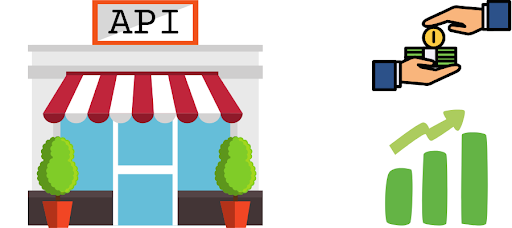Online markets provide a wealth of alternatives for business owners. With figures like these, it is not a surprise that websites like Airbnb and its business model are revolutionizing numerous businesses. However, a lot of investors think the market revolution is only getting started.
Platform technology formerly posed a significant barrier to entry into the business. The amount of effort required to create and manage a website the size of Airbnb is enormous, even for teams with many talented engineers. The hurdle was considerably higher for non-technical entrepreneurs because hiring coders is typically pricey.
What is a Marketplace for APIs?
By definition, a marketplace is a location where two parties who are mutually dependent—those who have something to offer and those who are seeking it—meet. As a result, when we speak of an API Marketplace, we are talking about a similar structure but one that is focused on APIs.
We have API users and API developers, but an API marketplace is more than just a gathering place. It is a setting that encourages innovation in the development of apps; activities are planned, and rewards are provided. As a result, we may characterize it as an “evangelizing” component that aims to increase both product and API use.
Characteristics of a Successful Market
These are some characteristics that a successful API marketplace platform must have:
- Supports API Management: An effective platform will enable you to manage and organize the numerous day-to-day responsibilities associated with maintaining APIs, ensuring you get the most out of them. You can increase the accessibility of your APIs, guarantee seamless scaling and orchestration, and reduce security concerns with an efficient API administration solution.
- Permits access management: The ability to impose access management and strengthen the security of your public or subscribed APIs is made possible by a flexible platform. You can manage and safeguard access to your free APIs with the help of this functionality.
- Encourages central monitoring: An intuitive cockpit that offers a uniform dashboard for monitoring APIs and guaranteeing their maximum performance is included with a powerful API directory.
- Recognizes questionable activity: An alert engine that actively monitors APIs and alerts users of any breaches, traffic surges, or other unusual actions is another feature of an efficient platform.
Why Use a marketplace for APIs?
Regarding API vendors:
- enables publishers to reach a larger audience base when marketing free APIs to use
- outline methods for obtaining feedback from API users.
- provides data, analysis, and other resources that may be used to evaluate the performance of the API.
- allows API developers to make money by providing various subscription options
- provides educational resources to help API providers quickly develop and launch their APIs.
For users of APIs:
- makes it simple for developers to find APIs. The majority of the time, APIs are divided up into several collections, categories, and capabilities. Because of this, developers can quickly search for and select APIs that best meet their needs.
- Developers don’t need to manually obtain approval from each API provider in order to instantly onboard and start implementing APIs.
- helps developers integrate APIs quickly and easily by offering documentation and instructional resources.
Benefits of API Marketplace
The API approach that has the highest chance of success for a firm considering an API-based line of business is the establishment of an API marketplace.
The benefits of using top API marketplaces are listed below so that you may see why:

1- API Marketplace improves customer awareness of APIs
The API Marketplace is available for developers to search through until they locate the APIs that offer the functionalities they want.
2- Encourages involvement
Forums on an API marketplace suggest a useful communication route that enables you to learn about market wants and provide essential comments.
3- Promotes the creation and application of APIs
You may discover a variety of developer education resources in an API marketplace, including guidelines and online conferences. They are unquestionably an important tool for both the development of APIs and the development of applications that use them.
4- Provides rewards to encourage the supply and demand for APIs
An API Marketplace encourages participation by generating rankings, charts, and data that promote the most popular APIs and apps, from the usage of monetary incentives to the straightforward ego boost of the developers.
5- Enables statistical evaluation of the efficiency of APIs
Statistics are the instruments that reveal their level of success, which is directly related to their likelihood of being commercialized.
Building a successful strategy for your APIs requires consideration of API markets. They make it possible for API providers and developers to collaborate, ensuring that APIs serve the purposes for which they were first created—namely, to promote application integration and consumption.
James Martin is a passionate writer and the founder of OnTimeMagazines & EastLifePro. He loves to write principally about technology trends. He loves to share his opinion on what’s happening in tech around the world.



